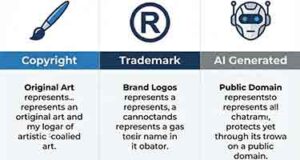lEGAL RESOURCES FOR CUSTOM T-SHIRTS PRINTING
At L.A. Dtg Printing, we aren’t lawyers but here is some info to get you started if you have trademark/ copyright questions or issues relating to your custom t-shirt printing designs.
Introduction
The world of direct-to-garment (DTG) printing offers incredible opportunities for creative expression. From unique personal designs to branding for businesses, custom t-shirts are a powerful medium. But with that power comes responsibility. Understanding trademark and copyright is crucial for anyone involved in DTG printing, whether you’re a designer, a printer, or a business owner selling custom apparel. This article will provide essential resources and insights to help you navigate these legal waters and protect your creative work.
Understanding the Difference: Trademark vs. Copyright
While often used interchangeably, trademark and copyright protect different aspects of intellectual property.

- Copyright protects original works of authorship, including designs, artwork, photographs, and text used on your custom t-shirts printing. It grants the creator exclusive rights to reproduce, distribute, display, and create derivative works based on the original.
- Trademark protects brand identifiers like logos, slogans, and brand names that distinguish your goods or services from others. Think of iconic symbols like the Nike swoosh or catchy phrases like “Just Do It.” Trademarks prevent others from using similar marks that could confuse consumers.
Why is this Important for DTG Printing?
For those operating in the DTG printing industry, understanding these legal concepts is paramount.
- Protecting Your Designs: If you create original designs for custom t-shirts, copyright protects you from others copying and profiting from your work without permission.
- Avoiding Infringement: When printing designs provided by customers, it’s crucial to be aware of potential copyright or trademark infringement. Using protected material without permission can lead to legal action and financial penalties.
- Building Brand Identity: If you’re building a brand around your custom t-shirt business, trademarking your logo and brand name can protect your identity and prevent others from using it.
Essential Resources for Trademark and Copyright
Navigating the legal landscape can be daunting. Fortunately, several resources are available to help:
- United States Patent and Trademark Office (USPTO): The USPTO website (www.uspto.gov) is the primary resource for trademark information. You can search their database (TESS) to see if a mark is already registered, learn about the application process, and access educational materials.
- United States Copyright Office: The Copyright Office website (www.copyright.gov) provides information on copyright registration, fair use guidelines, and other copyright-related topics.
- World Intellectual Property Organization: Read up on trademarks and intellectual property on the WIPO’s website (www.wipo.int/trademarks/en/trademarks.html)
- Legal Counsel: Copyright, trademark, and intellectual property are extremely tricky. Consulting with an intellectual property attorney can provide personalized guidance on protecting your designs and ensuring compliance.
Best Practices for DTG Printing Businesses
- Educate Yourself and Your Team: Ensure everyone involved in your DTG printing business understands the basics of trademark and copyright.
- Implement Clear Policies: Establish clear policies regarding the use of customer-provided designs and obtain necessary permissions before printing.
- Use Royalty-Free or Licensed Images: When using pre-made designs, ensure they are royalty-free or properly licensed for commercial use.
- Register Your Copyrights and Trademarks: Consider registering your original designs and brand identifiers for added protection.
Conclusion
Trademark and copyright are essential considerations for anyone involved in the DTG printing industry. By understanding these legal concepts, utilizing available resources, and implementing best practices, you can protect your creative work, avoid legal issues, and build a successful and ethical custom t-shirt business. Remember that this article is for informational purposes only and not legal advice. Always consult with a legal professional for specific guidance related to your situation. By taking the necessary steps to understand and respect intellectual property rights, you contribute to a thriving and creative environment for everyone in the custom apparel world.
Ready to print your original designs with L.A.’s most trusted custom apparel partner?
You handle the creativity; we’ll handle the quality. Start your order today with zero setup fees 📩